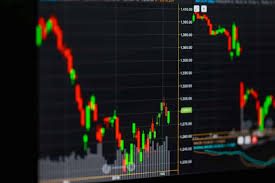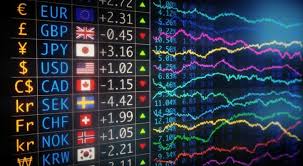
In the world of forex trading, understanding key concepts is crucial for success. One of the most important concepts that traders must grasp is what is margin in forex trading https://trading-connexion.com/. Margin is not only a critical element of risk management but also determines the amount of capital required to hold a position in the market. In this article, we will delve deep into what margin is, how it works, and why it is essential for forex traders.
What is Margin?
Margin in forex trading refers to the amount of money that a trader needs to deposit with their broker to open and maintain a leveraged position in the market. Essentially, it acts as a security deposit, ensuring that the trader can cover potential losses. Instead of having to put up the full amount required for a trade, margin allows traders to control larger positions with smaller amounts of capital.
Types of Margin
There are several types of margin that traders should be aware of:
- Initial Margin: This is the amount of capital required to open a position. It is calculated as a percentage of the full value of the trade.
- Maintenance Margin: This is the minimum amount of equity a trader must maintain in their account to keep a position open. If the account balance falls below this level, a margin call may occur.
- Stop-Out Level: This is the minimum account balance at which a broker will start closing a trader’s positions to prevent further losses, often triggered by falling equity below the maintenance margin.
How Margin Works in Forex Trading
To understand how margin works, let’s look at an example:
Suppose you want to buy 100,000 units of the EUR/USD currency pair, which is equivalent to one standard lot. If the current price of EUR/USD is 1.1000, the total value of the trade would be:
Total Trade Value = 100,000 * 1.1000 = $110,000

Now, if your broker offers a leverage of 100:1, you would need to deposit:
Initial Margin = Total Trade Value / Leverage = $110,000 / 100 = $1,100
This means that you would only need to use $1,100 of your own funds to open a trade worth $110,000. The leverage amplifies your potential profits, but it also magnifies your potential losses.
Leverage and Margin: A Double-Edged Sword
Leverage is a powerful tool in forex trading, allowing traders to control larger positions with smaller amounts of capital. However, it is essential to understand that increased leverage also means increased risk. While the potential for higher profits is tempting, the risk of larger losses is equally significant.
For instance, with the previous example, if the EUR/USD moves against you and the price falls to 1.0900, the value of your position would decrease:
New Total Trade Value = 100,000 * 1.0900 = $109,000
Your unrealized loss would be $1,000, which in percentage terms is a loss of approximately 90.91% of your initial margin. This highlights the importance of effective risk management strategies, as traders can quickly find themselves in unfavorable situations if the market moves against their positions.
Margin Calls and Liquidation
A margin call occurs when a broker notifies a trader that their account balance has fallen below the required maintenance margin level. This can happen due to losses on open positions. At this point, the trader must either deposit more funds into their trading account or close some positions to reduce their margin usage.
If the trader does not take action to rectify the situation, the broker may initiate liquidation of the trader’s positions to recover the losses. This is often referred to as a stop-out system. Understanding the implications of margin calls and liquidation is vital for any trader to avoid significant financial distress.
Why Margin is Important in Forex Trading
Margin plays a critical role in forex trading for several reasons:
- Amplification of Profits: By allowing traders to use leverage, margin enables them to increase their potential profits significantly with a smaller capital investment.
- Risk Management: A proper understanding of margin helps traders set risk parameters and manage their capital more effectively.
- Market Accessibility: Margin allows traders to engage in the forex market, which may otherwise require substantial sums of capital to participate fully.
Managing Margin Wisely
To navigate the complexities of margin management, traders can take several approaches:
- Use Leverage Wisely: While leverage can enhance profitability, it should be used cautiously. Traders should not over-leverage their positions.
- Stay Informed: Understanding market movements and economic events that affect currency prices can help traders make informed decisions and manage their margins effectively.
- Set Stop-Loss Orders: Implementing stop-loss orders can limit potential losses and protect equity, thereby reducing the risk of margin calls.
Conclusion
In conclusion, margin is an essential aspect of forex trading that every trader must understand. From how margin works to its implications on trading strategy and risk management, having a solid grasp of this concept will lead to more informed trading decisions. By managing margin effectively, traders can enhance their trading performance while minimizing risks. Remember, effective use of margin can be the difference between success and failure in the dynamic world of forex trading.
